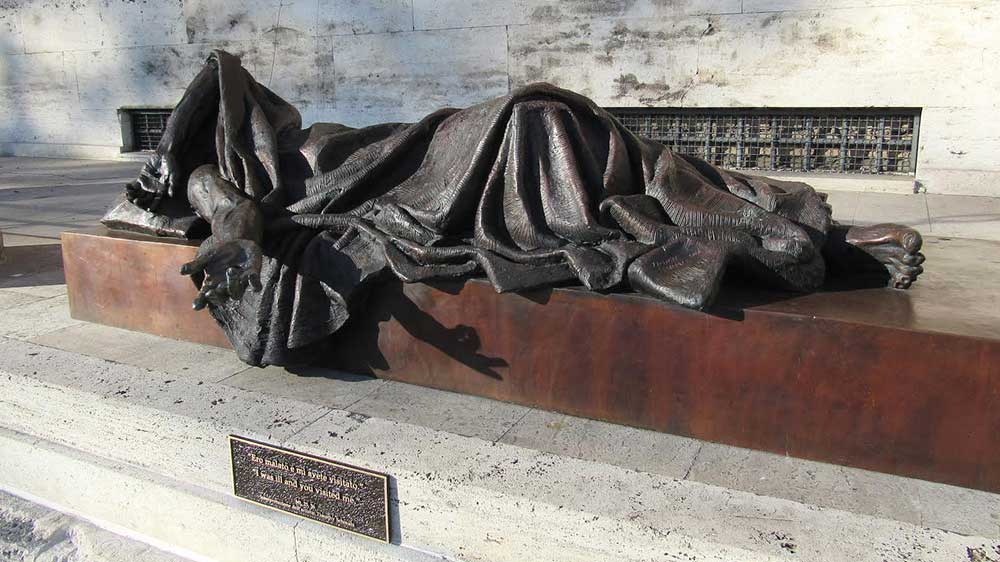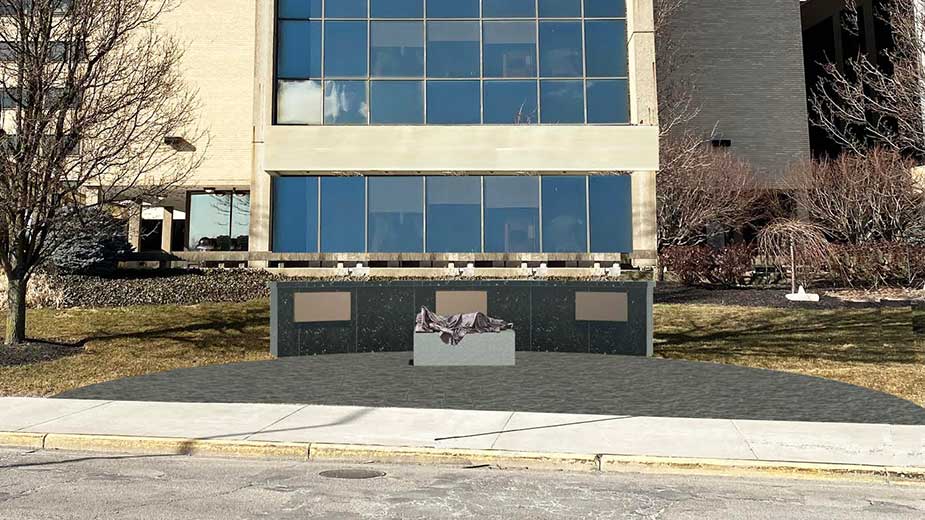On Pandemic Anniversary, Mercy Unveils Plans for COVID Memorial
YOUNGSTOWN, Ohio – A year ago Wednesday, the Mahoning Valley reported its first confirmed case of COVID-19 – at 1:57 p.m. on March 11, 2020 – at a time when the eventual scale of the pandemic was still unfathomable.
“No,” said Paul Homick after a pensive pause when asked if he or anyone else at the Mercy Health Foundation Mahoning Valley could have foreseen what’s happened next. “There’s no way any of us could have expected how devastating this disease would be and the impact it’d have on our caregivers. They’ve been remarkable every day in caring and battling for the people in our community. There are also the families who’ve been touched. There are so many levels of impact.”
The impact is hard to quantify. Yes, there have been 42,429 confirmed cases of COVID-19 and 1,198 deaths in Mahoning, Trumbull and Columbiana counties as of Thursday. But there’s also the toll it’s taken on health-care workers, on families, on businesses, on education. Every facet of life has been affected by the coronavirus.
To commemorate the victims of the pandemic – frontline workers, the sick and dead, and their families – Mercy Health Foundation Mahoning Valley will install in September a memorial outside St. Elizabeth Youngstown Hospital. A trio of plaques will honor each of those groups, while a time capsule installed at the site along Park Avenue will carry artifacts from the past year. The centerpiece will be a bronze sculpture, a new casting of Timothy Schmalz’s “When I Was Sick,” which depicts a sickened Jesus lying on a bed.
“The sculpture challenges the viewer to see Christ in the suffering of the sick and the infirm. Often, these people are the easiest to overlook, since it’s common for us to want to turn our eyes away from disease and injury,” said Homick, president of the Mercy Health Foundation. “After seeing this sculpture, it will be difficult to view the sick in the same way.”

A version of the sculpture sits outside Rome’s Santo Spirito Hospital, the oldest hospital in Europe. Schmalz’s works have been installed around the world, including in The Vatican, where Pope Francis blessed an installation of “Homeless Jesus.”
The memorial is expected to be completed by September. The time capsule, Homick added, is to be opened on March 11, 2120 – the centennial of the pandemic’s arrival here.
“The memorial will be a place where the Valley can permanently memorialize the pandemic and its effects on our community, serve as a place of reflection and commemorate the heroic work of our caregivers, who’ve provided exceptional, passionate care over the past year,” he said.
The project’s cost is about $150,000, with just under $50,000 committed so far, Homick said. Donations can be made at Foundation.mercy.com/youngstown or by calling the foundation at 330 729 1180.
Over the course of the pandemic, the Mercy Health Foundation has been providing support for health-care workers through a $1.5 million fund to provide Mercy staff with aid during the pandemic, including buying equipment and food, and support Mercy programs such as the Fruit & Vegetable Rx Program and Double Food Bucks for SNAP recipients.
“Our fund locally continues to provide that support, making certain that they have things taken care of at home and that there are opportunities to relax a little bit,” he said. “The ministry also provides a $60 million fund that’s spread all across our ministry.”
Pictured: A rendering of the COVID-19 memorial Mercy Health will install at St. Elizabeth Youngstown Hospital.
Copyright 2024 The Business Journal, Youngstown, Ohio.



